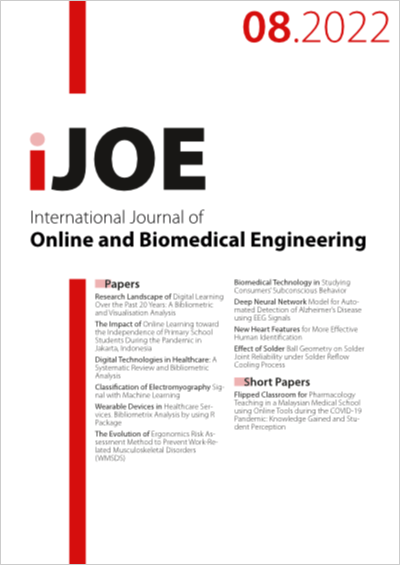The Impact of Online Learning toward the Independence of Primary School Students During the Pandemic in Jakarta, Indonesia
DOI:
https://doi.org/10.3991/ijoe.v18i08.31965Keywords:
online learning, the character of independenceAbstract
The implementation of physical distancing policy serves as the basis for the administration of online learning from home, which in turn encourages the use of information necessitating the students to change their learning method. Due to the use of digital apps, students are no longer participating in face-to-face learning and therefore required to independently complete the learning tasks assigned daily by the school. The purpose of this research is to measure the impact of online learning towards the character of independence displayed by fifth-graders during the pandemic. The research collected its data using quantitative method, namely distributing questionnaires to elementary school students in Jakarta. The samples of the research are mostly students performing online learning, with the primary variables used being online learning and the character of independence. The data obtained were processed using regression analysis and t test, which were used to measure the influence and significance level of online learning towards students’ character of independence. The research reveals that the significance level is 0.000 < 0.05 and the t count value is 6.465, which is greater than the t table value of 2.002. It can be concluded that online learning affects the character of independence possessed by the fifth-graders in Jakarta. This shows that traits suggesting independence, such as being capable of performing key activities in learning, as well as realizing and understanding what needs to be done to appreciate family members, teachers and the school by acting wisely and responsibly in completing learning tasks, have become new values that they believe in. To ensure that students keep developing their character of independence during the pandemic, improvements need to be made in terms of the quality and quantity of online learning facilities. Such improvements can be done through a collaboration between the government, schools, teachers, students and the society in general.
Downloads
Published
How to Cite
Issue
Section
License
Copyright (c) 2022 Ivan Stevanus, Maria Gita, Debor

This work is licensed under a Creative Commons Attribution 4.0 International License.


